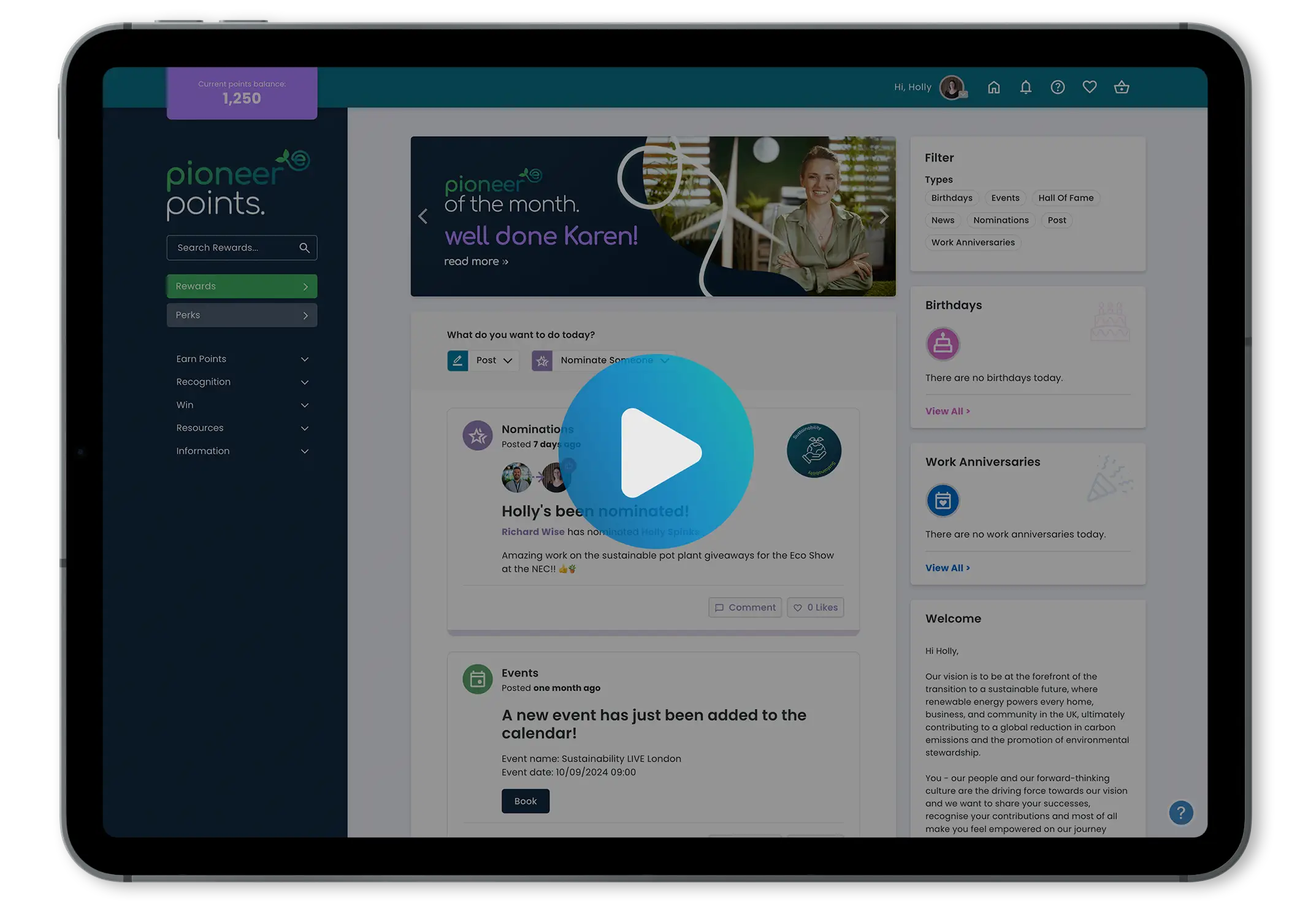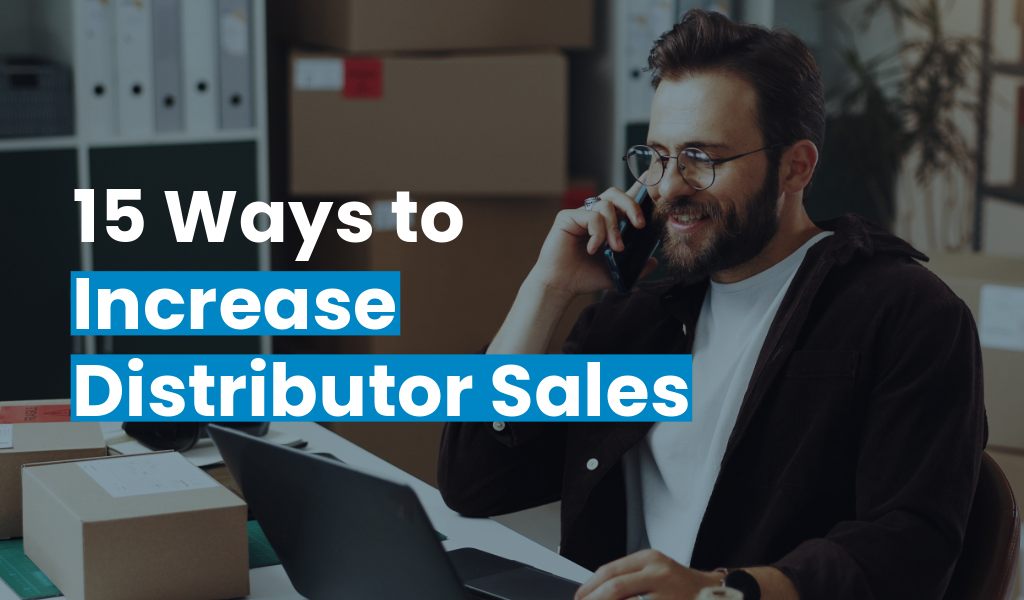


For manufacturers, distributor sales are critical. By effectively leveraging distributor networks, you can significantly boost your profits and ensure sustainable growth, without direct-to-consumer headaches!
However, the foundation for success here lies in cultivating unshakeable relationships with your distribution partners and giving them the comprehensive support they need to enable that all-important sales stream to keep flowing.
In this article, we’ll explain how to increase sales through distributors.
Skip to:
- Expand your network
- Focus on leads
- Build your brand
- Analyse data
- Organise sales teams
- Ensure quality customer service
- Offer incentives
- Provide case studies
- Share your product
- Introduce gamification
- Nurture relationships
- Host face-2-face events
- Streamline ordering
- Offer exclusive access
- Adapt your channels
- Discover how you can dramatically improve distributors sales
So, how do you increase sales with distributors?
Here are 15 strategies to help you drive an uplift in distributor sales…
 Expand your distributor network
Expand your distributor network
To boost your sales margin, expand your distributor network by partnering with more distributors, which can open new market opportunities and increase profits. Use your successful existing relationships as benchmarks by analysing and replicating communication, processes and mutual goals.
To give each new distribution partner you onboard a fighting chance for success, clearly outline your expectations for sales targets, marketing support and communication protocols to ensure mutual understanding. Also, be sure to provide comprehensive training on your products, brand values and sales techniques to maintain consistency across markets.
During the process, also be sure to maintain frequent communication with your distributors and regularly review their performance using metrics like sales volume, market penetration and customer feedback.
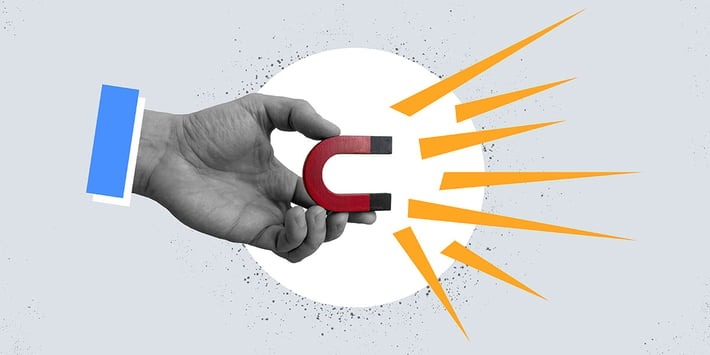
 Focus on your leads
Focus on your leads
By having well-defined lead criteria, you enable your distributors to prioritise effectively, leading to higher conversion rates and improved sales performance.
Start by clearly identifying the characteristics of your ideal customers, including demographics, purchasing behaviours and pain points, then share this information along with your overall sales strategy with your distributors – don’t work in silos! Keep those communication channels very much open.
Next, implement a lead scoring system to rank leads based on their likelihood to convert, allowing distributors to concentrate on high-priority leads first. Utilise your CRM system to manage and track leads efficiently, automate follow-ups and gain valuable insights into customer interactions.

 Build a strong brand
Build a strong brand
Building a strong brand is crucial for distributors for several compelling reasons…
Brand identity differentiation:
- Establishing a strong brand identity sets distributors apart from competitors in a crowded marketplace, fostering trust and credibility among their end customers.
- A strong brand signifies reliability and quality, driving sales and cultivating customer loyalty.
Attractiveness for partnerships:
- Positive brand affiliation attracts lucrative partnerships and opportunities, as manufacturers can collaborate with distributors with a stronger brand presence.
- Brand contributes to the perceived value of products, facilitating mutually beneficial collaborations.
Marketing simplification:
- Serves as a powerful marketing tool, simplifying the selling process and reducing customer acquisition costs.
- Leads to increased repeat purchases and referrals, expanding market reach and boosting sales.
Premium pricing power:
- Enables distributors to command premium pricing for their products and services.
- Customers are willing to pay more for brands perceived as superior, allowing distributors to achieve better profit margins and financial sustainability.
Guided business decisions:
- A clear brand purpose and vision provides direction for distributors, guiding their business decisions and ensuring consistency across operations.
- Fosters a strong sense of community and connection with customers, driving long-term success and resilience.
 Analyse sales data
Analyse sales data
Great data analysis provides a roadmap to guide distributors through the intricacies of their sales landscape. It offers valuable insights into various aspects such as customer behaviour and product performance. By examining this data, distributors can uncover patterns and trends, enabling them to refine their sales strategies.
Regular analysis of sales data is essential for distributors to stay ahead of the curve. Identifying key metrics, such as the top revenue-generating products or services, the fastest-selling items and most effective post-sales activities, can help distributors anticipate shifts in consumer preferences and market dynamics.
What’s more, it also enables distributors to make informed decisions that drive business growth. Armed with insights from their data analysis, they can innovate by introducing new services that align with market demands, adjust pricing strategies to remain competitive and devise targeted marketing campaigns that resonate with their target audience.

 Organise your distributor sales teams
Organise your distributor sales teams
A well-structured distribution network can greatly impact your brand’s success. First and foremost, it’s essential to appoint a dedicated product specialist or brand manager within your internal team.
Here’s how this role adds value:
- Product expertise: This individual possesses in-depth knowledge about your products, an understanding of features, benefits and competitive advantages. They serve as a conduit of information for internal stakeholders, distributors and their end customers, ensuring accurate and compelling product representation.
- Sales team support: They conduct regular training sessions for the sales network (both in house and indirect), keeping them informed about new products and market insights. This empowers the sales team to effectively communicate the brand’s value proposition and address customer needs.
- Feedback facilitator: Acting as a liaison between distributors and the company, they gather feedback on customer preferences and product performance. This valuable insight informs product development and marketing strategies.
- Strategic collaboration: Leveraging their understanding of products and market trends, this product/brand owner collaborates with cross-functional teams to refine sales strategies, optimise pricing and capitalise on emerging opportunities to ensure that sales efforts are aligned with market demands.

 Ensure quality customer service
Ensure quality customer service
To earn long-term loyalty from their customers, distributors need to focus on consistently delivering top-quality experiences with a personal touch at every step. Studies show that it’s much cheaper to keep existing customers happy than to constantly chase new ones.
Even a small 5% increase in customer retention can lead to a big jump in profits. So, it’s crucial to handle customer concerns quickly and sincerely through effective communication channels, always putting their needs first.
Offering centralised phone lines and strong customer service teams can make it easier for customers to reach out and get help fast, thus boosting their satisfaction. By really caring about your customers – both B2B and B2B2C, you can not only build loyalty but also see sales grow steadily, showing that investing in great service is totally worth it.

 Offer valuable incentives for distributors
Offer valuable incentives for distributors
While cash incentives and rebates may seem like the default choice, numerous studies reveal that they often fall short in fostering long-term results and can even undervalue distributors. They incur costs not just for your business but also for the recipients who are taxed on them.
To inspire distributors to embrace training, actively participate in campaigns, and uphold your brand values, investing in an incentivisation programme proves highly effective.
Implement a reward platform that empowers distributors to accrue points towards meaningful rewards they’ll aspire to earn. Rather than offering a standard year-end token of appreciation, grant them the freedom to select personalised gifts that resonate with their preferences. A well-crafted reward programme has the potential to distinguish your product from competitors and easily track performance, making it a vital asset to ensuring distributor loyalty to your brand above all others.
 Provide distributors with case studies to cite
Provide distributors with case studies to cite
Case studies are like real-life success stories for your products. They provide concrete data on how well your offerings perform in different markets, times and situations. SO be sure to provide your distributors with detailed reports, featuring colourful visuals, specific numbers and valuable insights into what makes your products tick. With this knowledge in hand, your distributor can tweak their own sales strategies for better results. It’s a win-win situation that helps both sides succeed.

 Send your products to distributors
Send your products to distributors
Imagine expecting your distributors to effectively sell your products without fully understanding their value. That’s like sending soldiers into battle without proper training! Never assume that your distributors are already well-versed in what you offer. Remember, you are one product line among many. Take proactive steps to officially unveil your services to their sales reps, so they can get up close and personal with it.
Provide insights into what makes your products exceptional, highlighting the unique benefits that differentiate them from competitors. Share your vision of the ideal customer profile to empower them in crafting tailored distribution strategies that align with your brand ethos. Plus, be sure to engage in dialogue with your partners to gauge their willingness to allocate time for training sessions and product introductions.
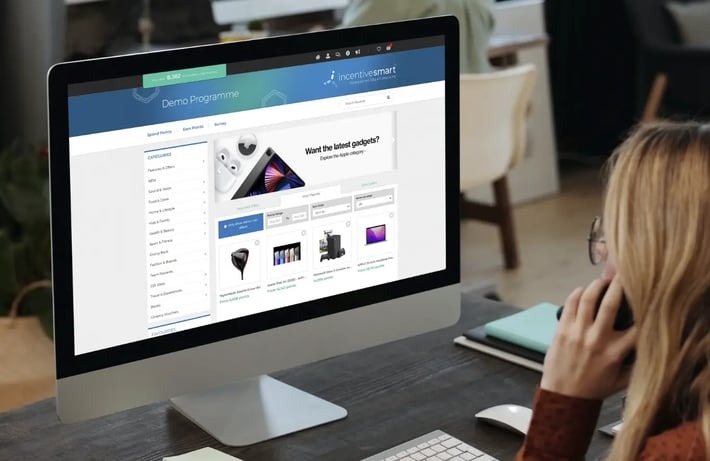
 Introduce gamification to sales tracking
Introduce gamification to sales tracking
Injecting a sense of excitement and friendly competition into the sales process can be highly effective. In such situations, distributors could earn points, badges or rewards for achieving their sales targets. This gamified approach not only adds an element of fun but also provides tangible recognition for their hard work and success. It transforms the often-mundane task of tracking sales into a more engaging and interactive experience, which can significantly boost participation and motivation among the sales team.
Features like leaderboards and friendly challenges can encourage distributors to push themselves beyond their usual limits. Also, distributors receive immediate feedback on their progress and can make necessary adjustments to their sales strategies in real time.

 Nurture relationships with distributors
Nurture relationships with distributors
Building genuine relationships with distributors is like nurturing lifelong friendships; due to the need for trust and cooperation to achieve shared success. When businesses invest in these connections, it’s not just about making deals; but about building lasting bonds that benefit everyone involved.
Clear communication and mutual understanding are key. It’s about listening to each other, addressing challenges together and finding ways to grow side by side. When distributors feel valued and supported, they’re more likely to go the extra mile to promote your products. They become your allies in the market, offering valuable feedback and collaborating on new ideas.
 Hold regular face-to -face events
Hold regular face-to -face events
Hosting regular sales conferences or roadshows provides a valuable opportunity to bring together your network of distributors and achieve multiple objectives.
Firstly, they serve as a platform to unveil new products, generating excitement and anticipation among distributors, as well as offering a forum for discussing crucial company updates, ensuring that everyone is well-informed and aligned with the latest developments.
These events are educational hubs where distributors receive training on emerging technologies and learn about innovative practices. This helps to equip them with the knowledge and skills needed to stay competitive. Plus, distributors can knowledge-share with others, which serves as catalysts for progress and innovation.

 Streamline ordering and delivery processes
Streamline ordering and delivery processes
Ensuring an efficient ordering and delivery process is vital for optimising the distributor experience and driving sales growth.
It begins by establishing streamlined systems for order processing and offering flexible delivery options that prioritise promptness and reliability. These efforts are pivotal in minimising delays and ensuring smooth operations, ultimately enhancing satisfaction levels among distributors.
It’s prudent to explore self-service solutions tailored to meet the unique needs of distributors. User-friendly online platforms or mobile applications that empower distributors to independently navigate product catalogues, monitor real-time inventory levels and place orders at their convenience. This enables distributors to gain greater control over their operations, leading to increased productivity and efficiency.
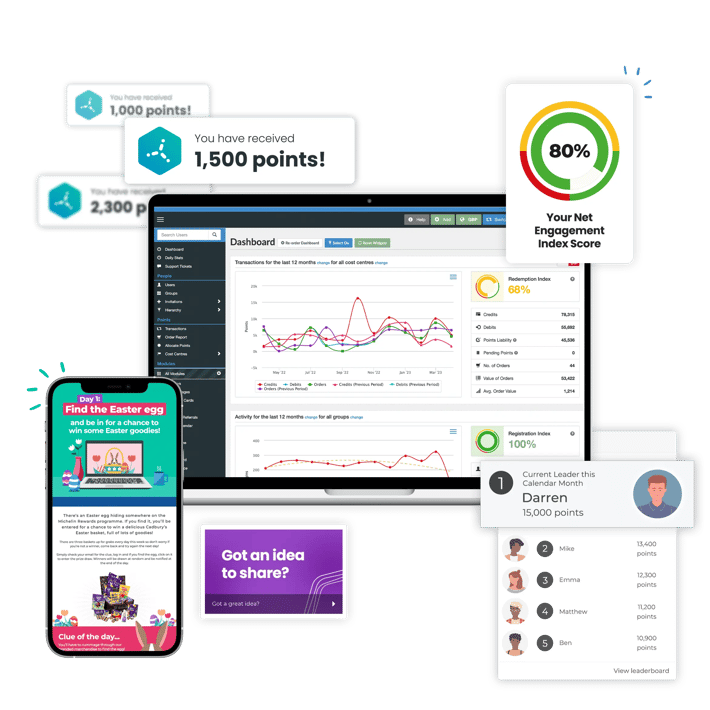
 Offer distributors access to exclusive product bundles
Offer distributors access to exclusive product bundles
Introducing exclusive product bundles is a strategic approach aimed at invigorating your distributors’ sales performance. It involves the meticulous curation of complementary products or services, bundled together with attractive discounts.
When customers recognise the value proposition inherent in a bundled offer, they are more inclined to make a purchase, resulting in a tangible uptick in sales volume and revenue for your distributors. Customers appreciate the convenience and savings provided by bundled packages, which cater to their diverse needs in a streamlined manner. This heightened level of satisfaction often translates into repeat business and positive referrals.
From the perspective of distributors, exclusive product bundles represent a strategic opportunity to maximise sales potential and expand their customer base. By effectively promoting these bundles, distributors can drive higher conversion rates and increase average order values, ultimately bolstering their bottom line.

 Adapt channels for both B2C and B2B markets
Adapt channels for both B2C and B2B markets
Adapting your distribution channels to effectively serve both Business-to-Consumer (B2C) and Business-to-Business (B2B) markets is crucial for maximising your revenue potential. While B2C channels typically involve shorter consumer journeys, B2B strategies often require more steps due to the elongated nature of business procurement processes.
B2B transactions may involve multiple decision-makers, complex negotiations and longer sales cycles. Plus, being prepared to handle bulk volume demands is essential. Businesses often require larger quantities of products or services to meet their operational needs or fulfil customer orders. This necessitates efficient inventory management systems, robust logistics capabilities and flexible production capacities to accommodate bulk orders and ensure timely delivery.
By adapting your distribution channels to cater to both B2C and B2B markets, you can effectively capitalise on diverse revenue streams and strengthen your competitive position. This flexibility enables you to meet the varying demands of different customer segments, ultimately driving growth.
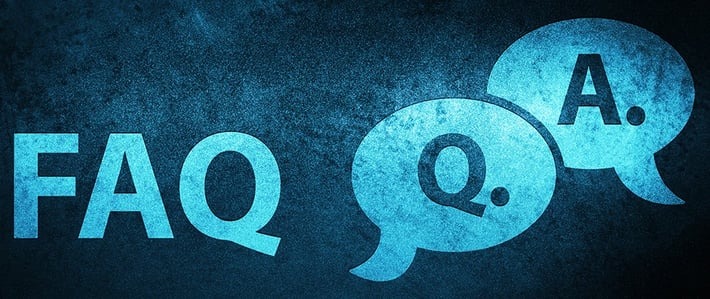
FAQs
Perplexed by the world of distributor sales? Here are some common questions we hear from newbies yet to be inducted into the complex realm of distribution networks.
What is a distributor in sales?
In sales, a distributor is a middleman or intermediary entity that purchases products from manufacturers or wholesalers and then sells them to retailers or directly to end consumers. Distributors bridge the gap between manufacturers and consumers, often handling tasks such as warehousing, inventory management order fulfilment and sometimes marketing and sales support.
Distributors typically operate within specific geographic regions or market segments and may specialise in certain product categories or industries. They add value to the distribution process by providing convenience, accessibility and localised service to customers while also offering manufacturers a cost-effective means of reaching a broader market, without having to establish their own sales and distribution infrastructure.
What is the difference between a distributor and a retailer?
The main difference between a distributor and a retailer lies in their roles within the supply chain and their relationships with customers and suppliers:
Role in the supply chain
Distributor: A distributor acts as an intermediary between manufacturers (or wholesalers) and retailers or end consumers. They purchase products in bulk from manufacturers or wholesalers and then sell smaller quantities to retailers or end consumers. Distributors typically focus on the logistics of moving products efficiently from producers to retailers, often providing services such as warehousing, inventory management and order fulfilment.
Retailer: A retailer, on the other hand, is the final link in the supply chain before products reach the end consumer. Retailers purchase products from distributors, wholesalers or occasionally directly from manufacturers and sell them to consumers through brick-and-mortar stores, online platforms or other channels. Retailers are responsible for merchandising, marketing and selling products directly to consumers, often providing a range of additional services such as customer support and after-sales services.
Customer relationship
Distributor: Distributors primarily serve business-to-business (B2B) customers, such as retailers, resellers or other businesses. Their focus is on meeting the needs of their customers by providing efficient distribution and logistical services, as well as offering value-added services such as technical support, financing and marketing assistance.
Retailer: Retailers typically serve end consumers (business-to-consumer or B2C), catering to the needs and preferences of individual shoppers. They focus on creating a positive shopping experience and meeting consumer demands through a mix of product selection, pricing, convenience and customer service.
Scope of operations
Distributor: Distributors often operate on a national or even global scale, serving a wide range of customers across different industries or sectors. They may specialise in specific product categories or market segments and maintain relationships with multiple manufacturers and retailers.
Retailer: Retailers can vary in size and scope, ranging from small local shops to large multinational chains. They may specialise in specific product categories (e.g., electronics, clothing) or offer a diverse range of products. Retailers typically focus on serving a specific market or demographic group and may operate through physical storefronts, online platforms, or both.
What is the difference between a distributor and a retailer?
The distinction between a distributor and in-house sales lies in their roles within the sales process.
Distributor: Distributors are autonomous entities that purchase products from manufacturers or suppliers and resell them to retailers, businesses or end consumers. They maintain their own customer base, often spanning specific geographic regions or industries and handle tasks such as order fulfilment and inventory management independently.
Retailer: On the other hand, in-house sales teams are internal to the company, directly employed to sell its products or services to customers. These teams focus on building relationships with target markets defined by the company and provide tailored solutions to meet customer needs. In addition to sales, they may also handle customer support, account management and after-sales service, fostering lasting connections with clients.
Increase distributor sales today
Now is the perfect time to start nurturing those crucial distributor relationships.
Talk to us to discover how Incentivesmart can empower your manufacturing business to maximise distributor sales and grow your market share.
Interested in experiencing our cutting-edge distributor loyalty platform firsthand? Schedule a demo and see the difference for yourself.
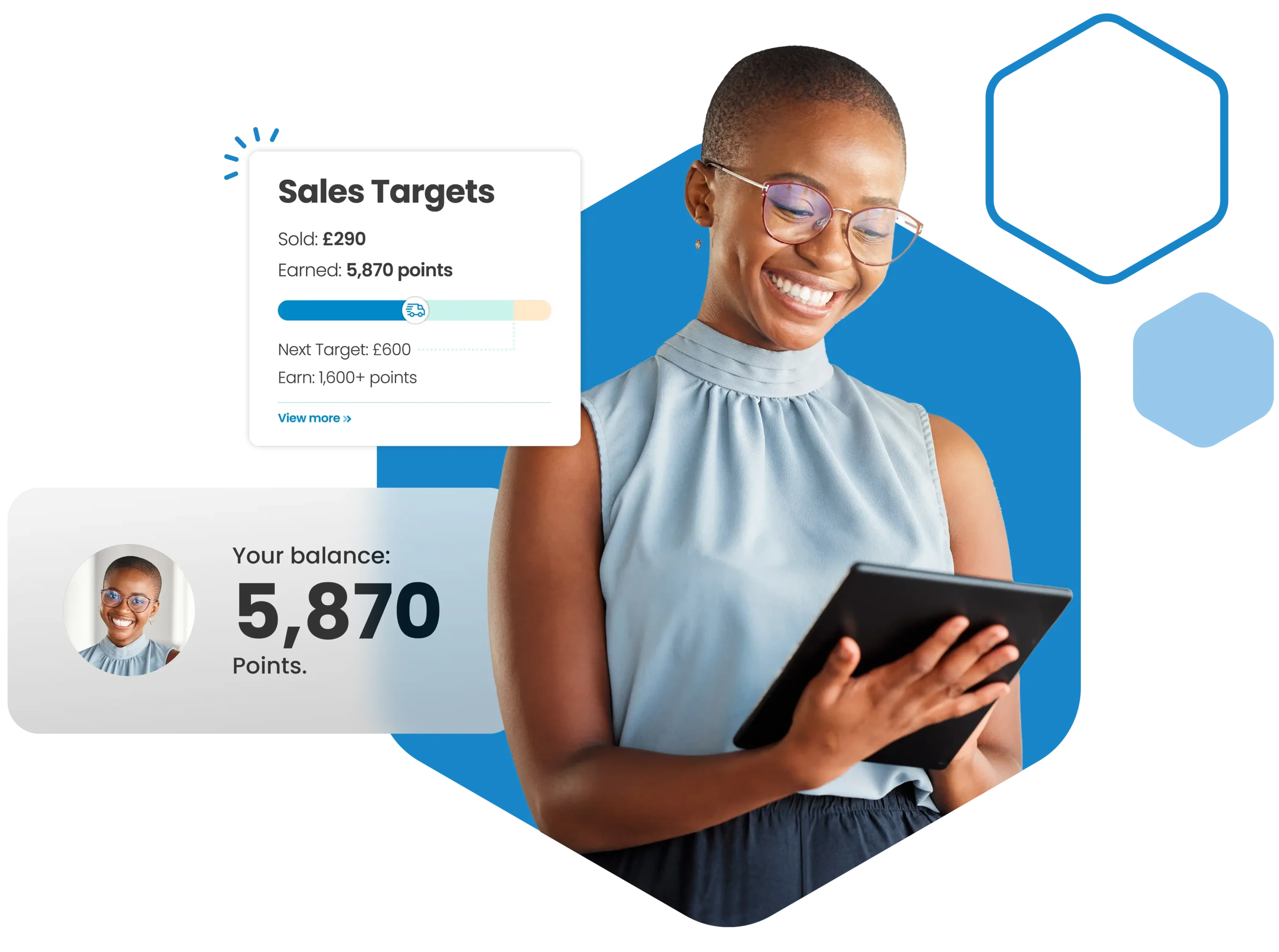


![*FREE GUIDE* See how manufacturers dramatically improve distributor sales Enter your business email for instant access. {{ include_custom_fonts({"Poppins":["Semi Bold"]}) }}](https://no-cache.hubspot.com/cta/default/5921162/interactive-188034387278.png)





